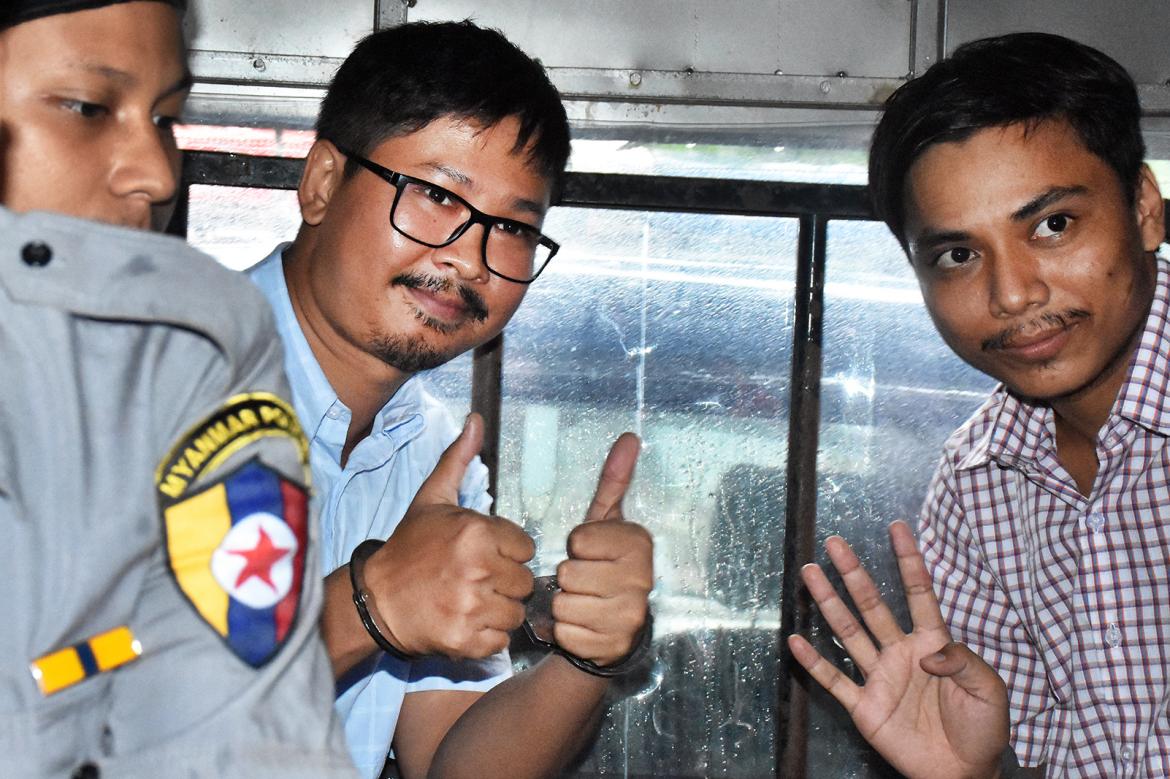Two Myanmarese journalists who were in prison for 511 days for chronicling the Rohingya massacre were freed on May 7. Wa Lone (33) and Kyaw Soe Oo (29), who work with Reuters, had been accused of violating the colonial-era Official Secrets Act during their investigative reporting that won them a Pulitzer Prize.
The duo was arrested in December 2017 under controversial circumstances and spent 10 months without any bail after which they were sentenced to seven years in jail. The two journalists were accused by the government of obtaining classified official documents which exposed the role of the Myanmarese military and state authorities in the Rohingya massacre.
Both of them have testified to having faced harsh treatment during interrogation. After his release, Wa Lone told reporters that he was determined to continue his journalistic work: “I’m really happy and excited to see my family and my colleagues. I can’t wait to go to my newsroom,” he said.
Their sentencing was condemned internationally and was dubbed by activists and many human rights organizations as politically motivated and an attempt to silence voices speaking against the genocide.
The court refused to drop the charges even after one policeman testified that his commander had ordered that documents be planted on the journalists. The petitions filed in Myanmar’s top court citing the lack of evidence, and a police set-up were also dismissed. Even in April 2019, an appeal filed by the journalists was rejected. Reporters without Borders said “their prosecution case was based solely on this trumped-up evidence.”
Lone and Kyaw’s investigation found a series of documents pertaining to the massacre. Their article follows an incident where 10 Rohingya Muslims, who were tied up, watched their Buddhist neighbors dig a shallow grave for them. Moments later, the captives were killed – two hacked to death by villagers and the others shot by soldiers.
“Both from modest, provincial backgrounds, they worked hard to pursue careers that would have been impossible in the junta era into which they were born. They were arrested because they documented a taboo topic regarding crimes committed against Rohingyas. The final choice of Wa Lone and Kyaw Soe Oo pays a tribute to their courage, resistance and commitment to freedom of expression” said Wojciech Tochman, president of the jury that selected their story “Massacre in Myanmar: One grave for 10 Rohingya Men” for UNESCO-Guillermo Cano World Press Freedom Prize, 2019.





